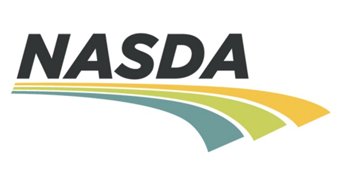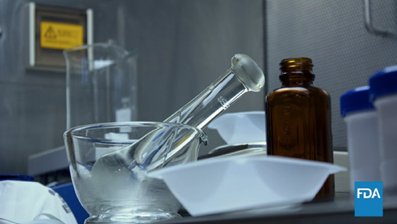Consumers want and expect safe, wholesome and affordable food. They deserve nothing less. In today’s #FDA #SUNDAYTWEETORIAL I’m talking about what steps the FDA, the states and produce farmers are taking - in collaboration - to ensure the safety of fresh fruits and vegetables. 

We hear too often about food safety concerns involving fresh fruit and vegetables -most recently the outbreak of E. coli O157:H7 infections associated with romaine lettuce from the Yuma growing region, the largest such outbreak in the U.S. in more than 10 years. 

From 1998-2008 there were 455 produce-associated food outbreaks, with more than 16,000 people becoming ill, more than twice the number of produce-associated illnesses from 1973-1997. This is a significant public health burden that should be largely preventable.
These trends prompted Congress to pass the Food Safety Modernization Act of 2010 (FSMA) which transformed our food safety system, including our approach to produce safety, from one that responds to contamination to one that prevents it in the first place bit.ly/2KTiQEC 

During my previous tenures at #FDA, preventing and handling outbreaks was frustrating and challenging because we lacked the necessary tools. It taught me the importance of preventive steps and a modern safety framework like FSMA.
FSMA requires #FDA to establish science-based, minimum standards for the safe growing, harvesting, packing and holding of produce on farms to minimize the presence of potentially dangerous contamination that could cause serious adverse health consequences or death.
After extensive public outreach in meetings, webinars, listening session and farm visits, we issued the Nov. 2015 Produce Safety Final Rule bit.ly/2MFizXl to implement these standards. Congress told us to make the rule practical, flexible and effective, and we did that. 

The new standards address agricultural water quality; employee health and hygiene; soil amendments of animal origin (compost and manure); equipment, tools and buildings; and domesticated and wild animals. These areas were identified as sources of contamination in the past.
Essential for success is creating an integrated food safety system that emphasizes education and culture change and requires industry, academia, and government to work together to promote best practices and support compliance strategies.
But getting the rule ready for prime-time is hard. We’ve learned that some provisions, including agricultural water, require further consideration. We've taken a flexible approach. We’ve pushed back inspections. We’ve created structures for continued collaboration and education.
The 1st major compliance date for large farms was in January. But routine inspections will not begin until spring of 2019 to give time for more guidance, training, technical assistance and planning. Small farm compliance dates are forthcoming bit.ly/2BboORu. 

Since states are often the most familiar with their farmers’ growing and harvesting practices, we will rely on them to conduct most routine inspections. #FDA has provided 46 states with $32.5 million for State Produce Safety Programs to implement standards in their communities. 

Training farmers is critical and a number of training opportunities are available. The Produce Safety Alliance bit.ly/2w6pJNs has trained 25,000 farmers both here and abroad at 1,000+ courses. To leverage resources, it has also conducted 66 train-the trainer courses. 

The National Association of State Departments of Agriculture (NASDA), in collaboration with FDA, has developed an On-Farm Readiness Review (OFRR) program. Food safety experts conduct free, voluntary, non-regulatory visits to farms to observe practices & provide constructive input 

After successful pilot runs, OFRR is being rolled out this summer. NASDA is also training those who will conduct these audits with 14 training sessions already completed and is working with states to set up mechanisms for farms to request OFRRs. @NASDAnews
I had the opportunity to join an informal OFRR visit to the Willis family farm in OR, engaging in a frank discussion about the issues local farmers face in meeting the Produce Safety Rule requirements. My appreciation for the hardworking American farming community only deepened. 

To support stakeholder implementation of the rule, #FDA stood up the Produce Safety Network - produce safety experts from our food center (CFSAN) and specialized investigators from the Office of Regulatory Affairs who are located across the country. 

We are also partnering with USDA to make sure that USDA’s harmonized good agricultural practices (HGAP) audit program is fully aligned with FSMA to help growers around the country comply with the Produce Rule requirements. 

The Produce International Partnership for Education and Outreach is coordinating an international outreach strategy and adapting the standardized curriculum for overseas growers who export 53% of fresh fruit and 29% of vegetables consumed in the U.S. bit.ly/2MhugaM.
#FDA is committed to imported produce being as safe as produce grown in the U.S. By relying on states for most domestic inspections, we can focus our resources on foreign inspections, using new tools such as FSMA’s Foreign Supplier Verification Programs bit.ly/2nKoAYd. 

Guidance and training is essential. We issued a small entity guidance. Additional guidance is coming soon to help farmers better understand the many ways they can meet FSMA requirements. Some components of the produce safety rule needs more dialogue with the farming community. 

Many feel our microbial quality water standards are too complicated and in some cases too costly to be effectively implemented. We've collected info about on-farm conditions and water systems at an Ag water summit and from additional farm tours and are considering next steps. 

We’re also working on rulemaking that will clarify the definition of a farm and address questions we have received on what requirements such entities as packing houses and terminal markets should follow.
And we're continuing work on the safe use of untreated biological soil amendments of animal origin, such as raw manure. @USDA has been a great partner, conducting research that will inform future policy bit.ly/2MJQMoN.
Food safety is one of my highest priorities. The measures outlined by the Produce Safety Rule, when fully implemented, will reduce the chance of an outbreak like the recent one involving romaine lettuce. That’s our goal. And it's our solemn commitment to the American public. 

• • •
Missing some Tweet in this thread? You can try to
force a refresh
















